KODAK ESP 3.2 and 3.2s All-in-One Printers — Extended User Guide
Table of Contents > Handling Paper > Loading paper
4 Handling Paper
Loading paper
Loading plain paper
The paper input tray capacity is 100 sheets of plain paper.
 Click to view a video that demonstrates loading plain paper.
Click to view a video that demonstrates loading plain paper.
-
Lift the paper input tray.
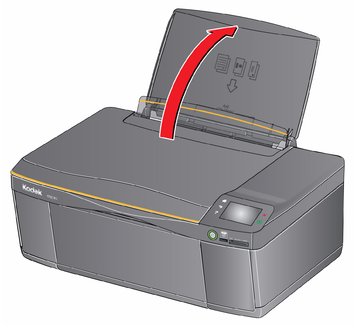
-
Open the paper output tray, then pull the extender until it is fully extended.
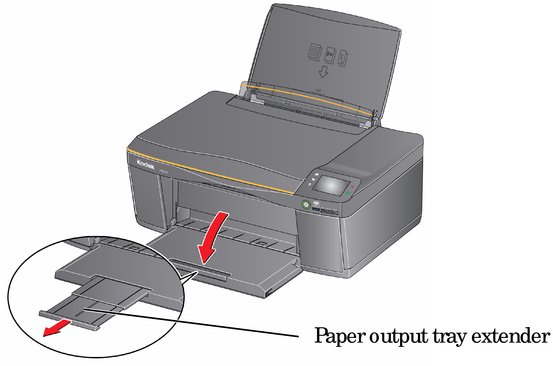
-
Move the left and right paper-edge guides to the far left and far right positions.
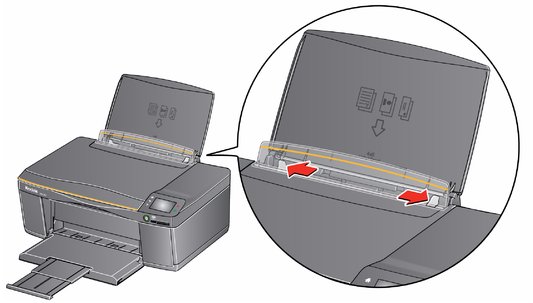
-
Fan and stack the paper, then insert the paper into the paper input tray.
-
Move the paper-edge guides until they touch the paper.
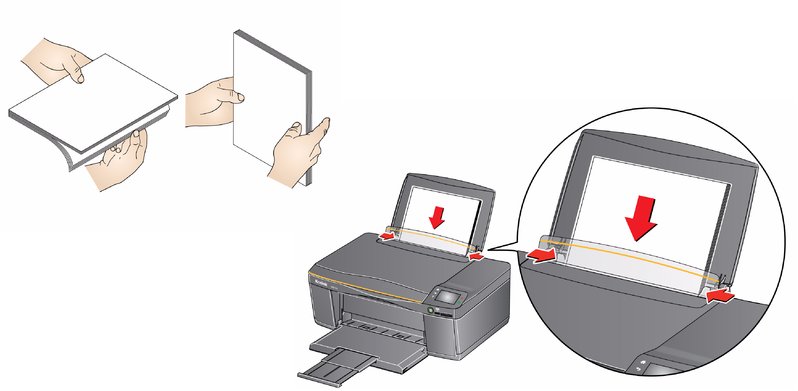
Loading photo paper
The paper input tray capacity is 20 sheets of photo paper.
 Click to view a video that demonstrates loading photo paper.
Click to view a video that demonstrates loading photo paper.
-
Lift the paper input tray.
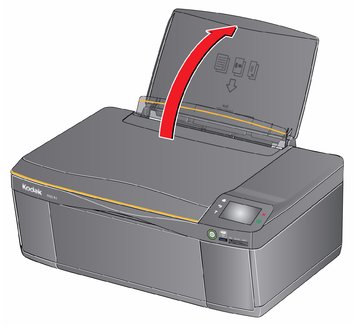
-
Open the paper output tray, then pull the extender until it is fully extended.
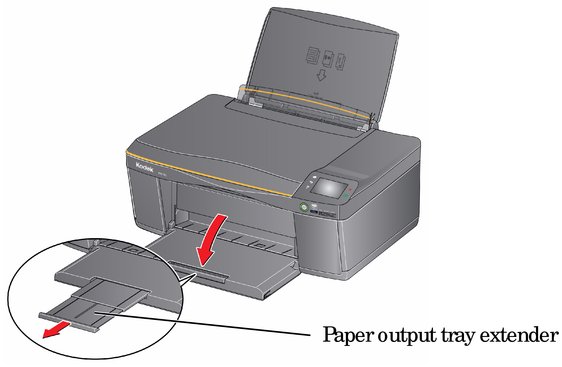
-
Move the left and right paper-edge guides for loading photo paper.
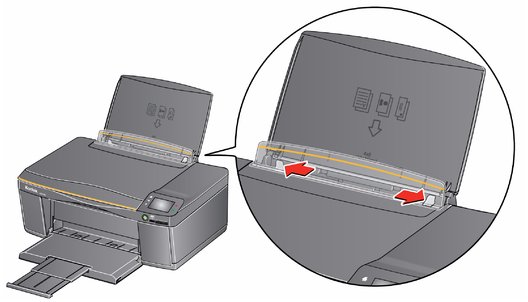
-
Insert photo paper (short side first) with the logo side toward the tray and the glossy side toward you.
IMPORTANT: Always load the paper short side first . The printer automatically detects the orientation of the picture, whether it's portrait or landscape, and prints accordingly. If the photo paper is loaded incorrectly, the image will be cut off and the paper may jam. If the paper is loaded with the wrong side up, the image quality will be affected.
-
Move the paper-edge guides until they touch the paper.
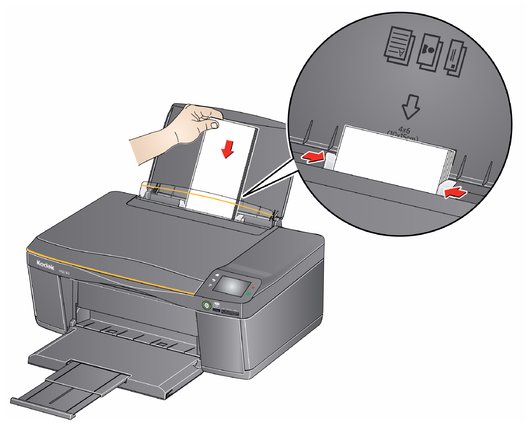
Loading envelopes
The paper input tray capacity is 20 envelopes.
| IMPORTANT: | Do not load envelopes with cutout or clear windows. |
-
Lift the paper input tray.
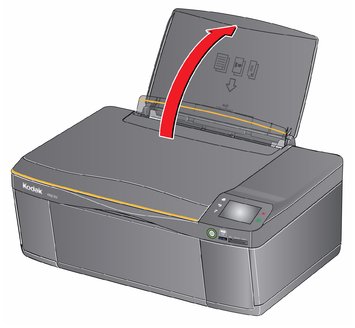
-
Open the paper output tray, then pull the extender until it is fully extended.
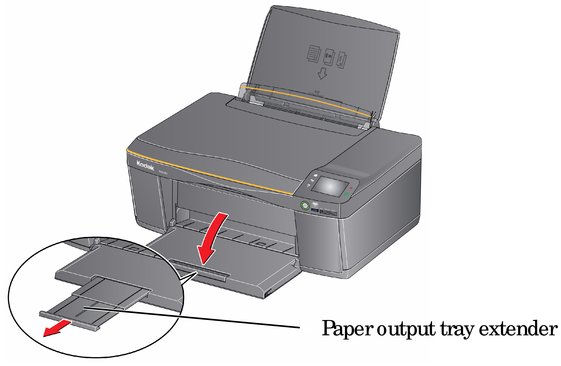
-
Move the left and right paper-edge guides to the far left and far right positions.

-
Insert the envelope(s) with the flap toward the tray and the top of the envelope against the right side of the tray.
-
Move the paper-edge guides until they touch the envelope(s).
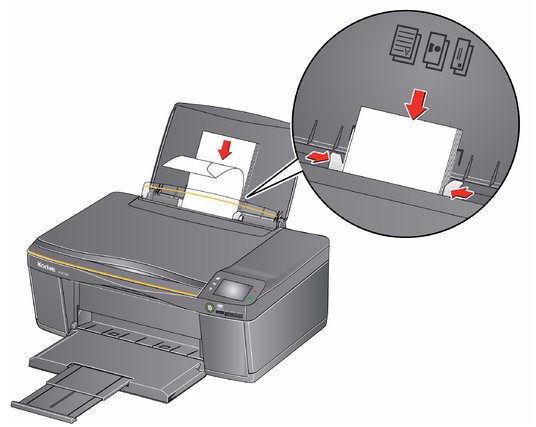
Previous Next